Micro-credentials in a Minute Episode 22: How Micro-credentials Motivate Learners
Greetings friends ✨
In service to making the digital badge and micro-credential space more accessible to the broader community, the Micro-credential Multiverse team has launched a series of conversations with industry leaders in the space we’re calling “Micro-credentials in a Minute”.
Each episode of the podcast will be about a minute long and address critical questions on micro-credentials, digital badges, learning pathways, digital wallets, and more!
Introducing Micro-credentials in a Minute
Episode 22: How Micro-credentials Motivate Learners
Welcome to "Micro-credentials in a Minute," produced by Micro-credential Multiverse.
In a world where learning never stops and careers are becoming more fluid, how can micro-credentials motivate learners and meet the needs of today's workforce stakeholders?
That's the topic of discussion on this episode of "Micro-credential in a Minute", produced by Micro-credential Multiverse. Joining host Rob Bajor is micro-credential and digital badge expert Katie Sievers (Credly by Pearson), who breaks down the three core psychological needs of motivation according to self-determination theory: competence, relatedness, and autonomy. They discuss how micro-credentials can serve as physical proof of one's knowledge and skills, grant social affiliation with a certain brand or community, and offer a lifelong learner's tool for shaping their professional journey.
They also explore the value of incremental recognition and stackable credentials in building learners' self-efficacy and belief in their capacity to achieve specific goals. With examples ranging from ethical hacking to service learning courses, Rob and Katie show how micro-credentials can be used to blend intrinsic and extrinsic motivation and help learners achieve their career aspirations.
Tune in to this engaging and informative episode to learn more!
Guests
Learn more about our guests
Transcript
Micro-credentials in a Minute: How Micro-credentials Motivate Learners
Robert Bajor: Hi, my name is Rob
Katie Sievers: and my name's Katie. And we are micro-credential and digital badge experts.
Robert Bajor: Great. Today I asked Katie to join me for a conversation about how micro-credentials motivate learners.
Robert Bajor: Uh, and I know you've thought a lot about this, so what do you think, Katie?
Katie Sievers: This is a fun one. So first thing I'll say is that motivation is super complex. It's never purely intrinsic or extrinsic. Sometimes we, we hear those things on different ends of the spectrum- it's always some blend of both.
Katie Sievers: And I'll also note that when we talk about credentials and motivation, we can think about motivating elements of the tech itself as well as motivating elements of how that tech is used.
Katie Sievers: So when thinking about how credentials are related to motivation, I like to think of this through, this is probably very nerdy, but I like to think of it through the lens of self-determination theory.
Katie Sievers: Which states that we have three core psychological needs and those are competence, relatedness, and autonomy. So I'm gonna break that down.
Katie Sievers: In terms of competence. Credentials are literally physical proof that you know or can do something. And research shows that in the context of learning outcomes and engagement, specifically mastery-based credentials, ones that actually speak to your competence are typically more effective in reaching those goals of learning outcomes and engagement than performance-based credentials, which just proved that you completed certain tasks.
Katie Sievers: So, next concept of relatedness comes from a couple of things. One is utility. That this is gonna help me achieve a goal that I care about, whether that goal is preparing for a new role or building a skill that I need to perform my current job. Um, and relatedness also comes from social connection. It grants me an affiliation with a certain brand or membership with a certain community I admire that's related to reputation.
Katie Sievers: And there's kind of a transfer of that reputation to yourself when you suddenly have, um, perhaps a credential image that has that logo now on your LinkedIn profile.
Katie Sievers: Autonomy then comes from the freedom to pursue all sorts of different types of experiences that are gonna help me achieve specific goals at any point in life.
Katie Sievers: So micro-credentials are basically the lifelong learners tool to shape and tell their professional journey however they want to. And one note I'll add is that autonomy is undercut in the case of a few things, like maybe compliance courses where we have to complete a course to fulfill a requirement or when people don't have flexibility to learn what they want, when they want, maybe that's in a degree program with set prerequisites.
Katie Sievers: In those cases, credentials can be used as an extrinsic lever to incentivize just the completion, but also to emphasize those intrinsically motivating factors of competence and relatedness that are gonna then allow that learner to feel intrinsically motivated.
Katie Sievers: So one more thing that I've been thinking about in this topic is whether micro-credentialing pathways that incorporate some incremental recognition. So we think of those stackable credentials. Can actually help learners build self-efficacy or a belief in one's capacity to act in ways that are necessary to reach specific goals.
Katie Sievers: Self-efficacy is a huge part of motivation, if we think we can achieve a goal, then we're probably more likely to pursue that goal in the first place. So, I think that's an area that's really right for research.
Robert Bajor: Yeah, and I think that pathways, when they're structured, when they're well formatted, help learners literally see the steps they need to take to get where they want to go.
Robert Bajor: They can see the stepping stones, they're demystified.
Robert Bajor: So I totally agree with you there. Um, you mentioned those three, components, competence, relatedness, and autonomy. And I wanted to just provide maybe an example of all three of those things. So when I'm thinking about a signal of competence, something like the Certified Ethical Hacker program is an idea that comes to mind.
Robert Bajor: It shows an interest in the space of penetration testing and like white hat hacking, but it also serves as a really important, uh, stepping stone for folks who want to maybe pursue software engineering or development or cybersecurity in a non-traditional way.
Robert Bajor: So that would be an example of a microcredential that motivates, in terms of its competence.
Robert Bajor: When it comes to relatedness I like that you mentioned the logo, because I remember when I was a teacher, uh, I was looking at microcredential programs, that I was developing with Digital Promise and things like Jane Goodall's Roots and Shoots and like National Geographic really jumped out at me because it was very related to like, you know, my role as a biology teacher.
Robert Bajor: Um, and having that logo really motivated me to pursue those specific like service learning style courses versus something, you know, that might attract a different teacher.
Robert Bajor: Uh, when it comes to autonomy, I actually think this speaks to the popularity of non-degree bearing certificate courses. So especially professionals who wanna differentiate themselves maybe within their current workplace, or maybe they're planning, you know, a lateral move or maybe a promotion or something like that.
Robert Bajor: Being able to signal that they're motivated to pursue that additional learning qualification regardless of whether or not it bears any credits really speaks to that kind of motivation and the blend intrinsically and extrinsically like you mentioned.
Robert Bajor: Can you think of any other examples that maybe leverage uh, a blend of motivations?
Katie Sievers: So one example I'm thinking of is not a credential bearing experience, but theoretically it could have been recognized by a credential.
Katie Sievers: Um, and I think a, a credential just amplifies the learning experience. So I think it's still relevant. I was in a consulting engagement and I was tasked with designing a survey. I had taken maybe one class on this in grad school, but I needed a refresher, um, that was very tactical, so I found a MOOC online and completed the course.
Katie Sievers: And as I was going through the course, I was just immediately applying what I was learning. It was directly related and useful to my goal at work. Um, I completed the engagement, I finished up the, the course online and felt very competent that I was able to successfully deliver that, that engagement. So I would say that helped me feel competent, it scaffolded my work that I needed to do anyway, and it was directly related to the goals that I had in the moment.
Micro-credentials in a Minute
Check out other episodes of Micro-credentials in a Minute
Micro-credentials in a Minute is also available on a variety of podcast platforms including,
If you enjoyed this article, please consider:
🕊 Following me or my new company Micro-credential Multiverse on LinkedIn.
💌 Subscribing to my newsletter on LinkedIn to get these posts delivered conveniently to your inbox.
🌎 Sharing this article with someone in your network.






























